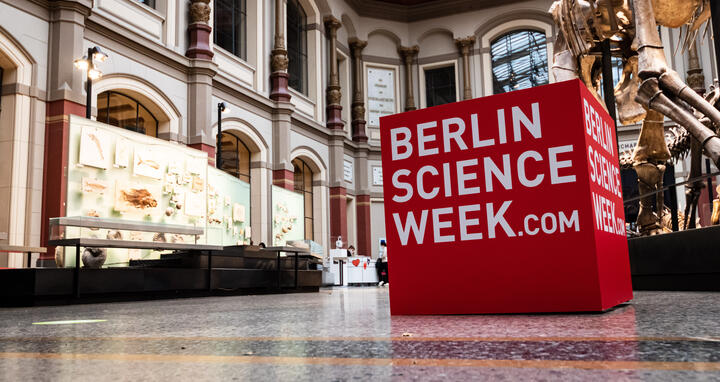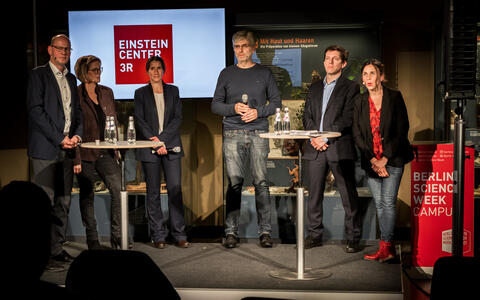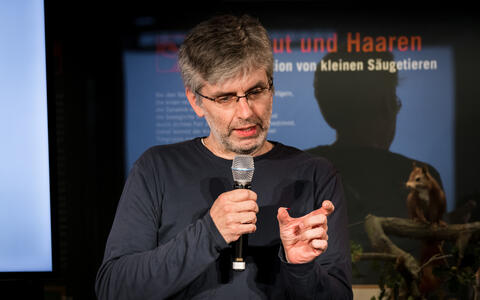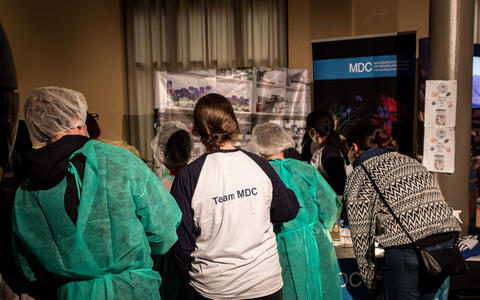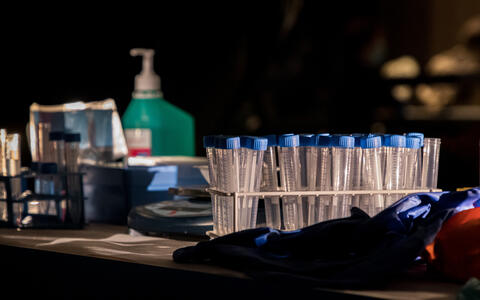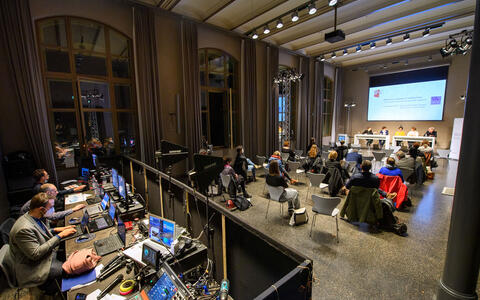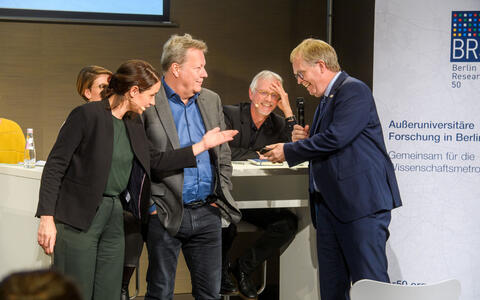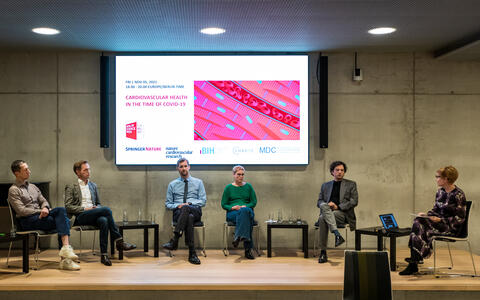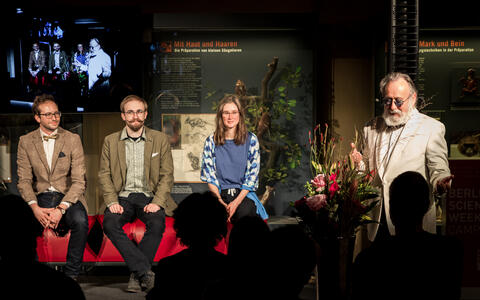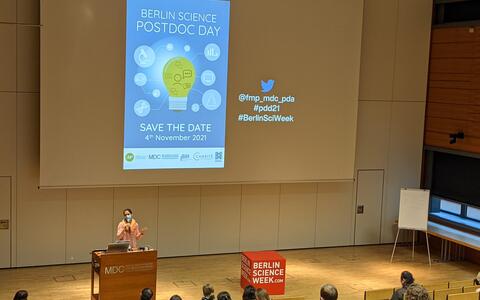📺 A festival for curious people
There’s nothing unusual about celebrating a child's birthday in a museum. About marveling at the museum with your guests. But what about actually winning the Laboratory Olympics yourself? That probably only happens to really lucky kids. However, that is precisely what happened at the MDC stand in the Berlin Museum of Natural History. And it was above all the younger guests at the Berlin Science Week who most enjoyed activities like pipetting and playing guessing games. But the MDC program also offered plenty of stimulation for interested adults.
For those who could not be there, here some impressions:
BR50 Panel Discussion: Diversity Instead of Uniformity
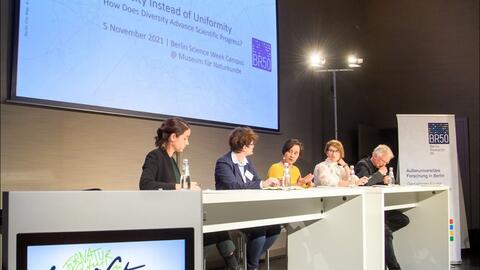
Diversity Instead of Uniformity - How Does Diversity Advance Scientific Progress? | Public Discussion at the Berlin Science Week Campus @ Museum für Naturkunde Berlin | 5 November 2021
Diversity management, gender equality and internationalization have become guiding principles for almost all scientific institutions, especially in Berlin. At the beginning of the year, DFG President Katja Becker stressed that diversity and excellence are inseparable concepts for her. However, it remains true that the further up the career ladder you go, the more uniform the people who reach these positions tend to be. At the same time, many scientists have problems establishing themselves in Germany and face problems with the language, bureaucracy and other personal challenges. Unfortunately, it is also evident that people in the scientific environment are not spared from experiences of discrimination and prejudice.
BLUMEN! – Die Wissenschaftsshow

Nun sprechen die Blumen... Drei Berliner Institute hatten eine Woche Zeit, ungewöhnliche Clips zu produzieren, um für ihre Wissenschaft zu begeistern. Brilliante Wissenschaftler*innen des Max-Delbrück-Zentrums für Molekulare Medizn (https://www.mdc-berlin.de/de), des Instituts für Kristallzüchtung (https://www.ikz-berlin.de/) und des Instituts für Gewässerökologie und Binnenfischerei (https://www.igb-berlin.de/) zeigen, wieso ihr Forschungsgebiet das aufregendste der Welt ist. Sie mussten nicht nur unseren Host Friedrich #Liechtenstein überzeugen: Das Online- und das Live-Publikum bewerteten die Clips. Das Gewinner-Video vom #mdcBerlin wird einen Monat lang auf der #Science-Fassade des Paul-Drude-Instituts laufen. Hier seht ihr es schon vorab!
Deep Dive – Being a Postdoc at the MDC Berlin
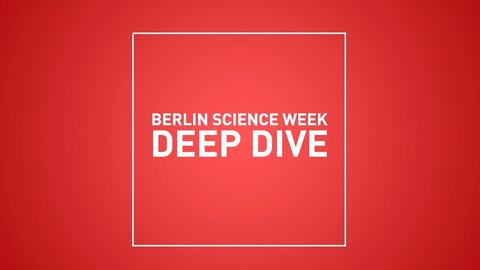
Who is considered a postdoc? What does it mean to become and be a postdoc? Why do postdocs pursue careers in natural sciences? What does the daily life of a postdoc entail? In this #BerlinScienceWeek 2021 "Deep Dive", #mdcBerlin science manager Anne Merks and #FMP postdoctoral research fellow Jeremy Morgan explain their work, motivations, career opportunities and more. Jump right in!
Cardiovascular Health in the Time of COVID19
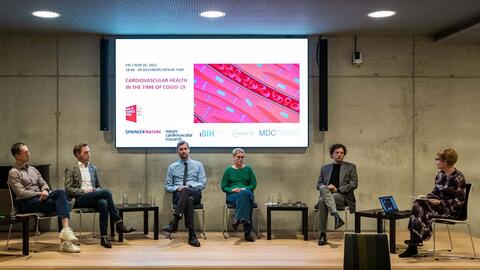
#COVID19, caused by a severe acute respiratory syndrome coronavirus 2 (#SARSCoV2), has become a global #pandemic that has affected the lives of the entire human population. The panel, composed of Berlin-based experts in basic, translational and clinical science focused on cardiovascular disease and immunology, discusses three key aspects:
How are pre-existing #cardiovascular conditions associated with worse outcomes and increased risk of death in patients with COVID-19? How can COVID-19 itself induce cardiovascular disease, such as venous thromboembolism, high blood pressure, acute coronary syndrome, myocardial injury, and arrhythmia? And how can we minimize all these risks by #vaccination?
Einblicke in das neue Einstein-Zentrum 3R
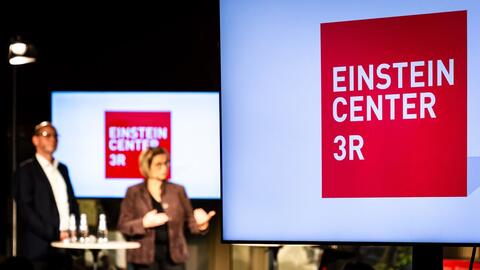
Forschung an Mini-Organen, menschlichem Gewebe oder Multi-Organ-Chips – moderne Technologien versprechen eine Zukunft ohne #Tierversuche. Was ist der aktuelle Stand der #Forschung? Wie funktionieren diese Methoden und wo liegen ihre Grenzen?
Eine moderierte Podiumsdiskussion mit kurzen Filmbeiträgen aus den Laboren widmet sich diesen und weiteren Fragen. Erfahren Sie, wie Berlins #Wissenschaft daran arbeitet, die Forschung im Sinne von #3R – Replace, Reduce, Refine von Tierversuchen – zu verändern und zu verbessern. Auf dem Podium erklären Wissenschaftlerinnen und Wissenschaftlern des neuen Einstein-Zentrum 3R ihre Forschung. Ziel des Zentrums ist es, zur Entwicklung neuer Therapien für menschliche Erkrankungen beizutragen, indem die Übertragbarkeit von Laborerkenntnissen auf den #Patienten verbessert und gleichzeitig der #Tierschutz gestärkt wird.

